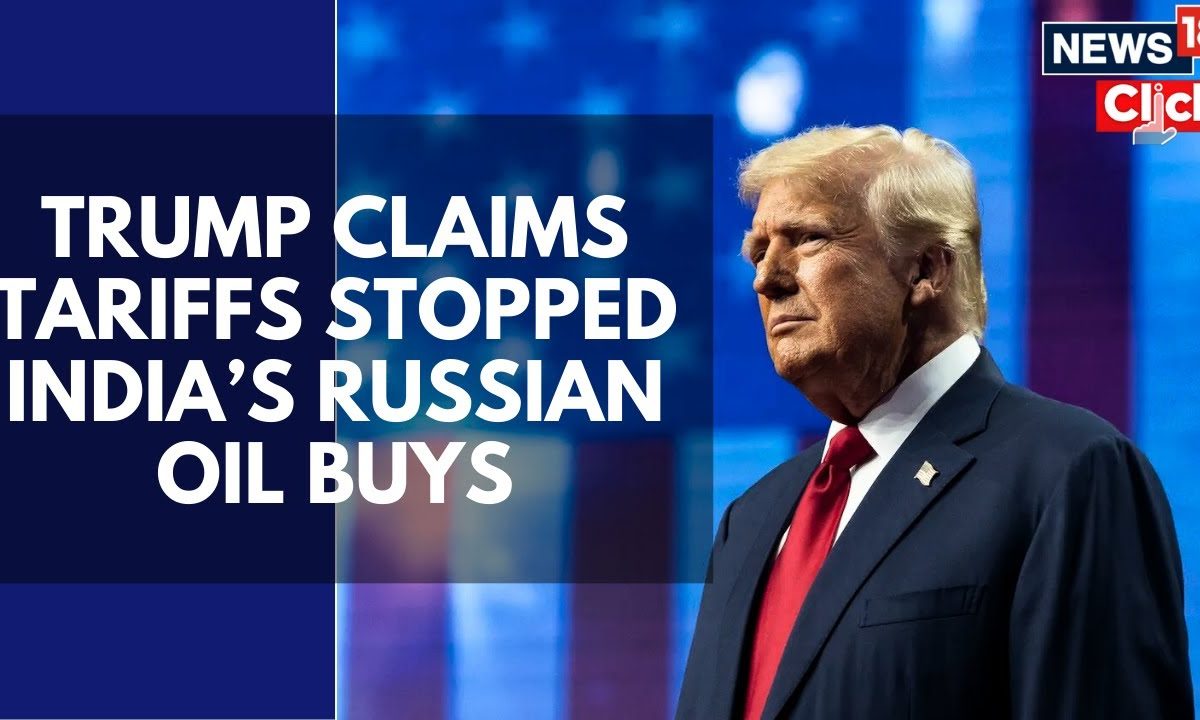

Donald Trump has recently claimed that tariffs imposed by the United States halted India's oil purchases from Russia. This assertion comes amid a complex situation involving international trade, energy security, and geopolitical relations. However, data and reports from various sources contradict this claim, indicating that India continues to import Russian oil, albeit with fluctuations influenced by economic factors.
India's Stance and Oil Imports
Despite the U.S. tariff threats, India has maintained that its oil purchases from Russia are driven by economic considerations. A.S. Sahney, Chairman of Indian Oil Corporation (IOC), has stated that there has been no halt in Russian oil imports and that decisions are based purely on the economic viability of the deals. India has not violated any sanctions by importing Russian oil.
Data indicates that India's Russian crude oil imports have surged to 2 million barrels per day (bpd) in August, a rise from 1.6 million bpd in July. This increase has primarily affected imports from Iraq and Saudi Arabia. Russia now accounts for 38% of India's total crude imports.
Economic Factors and Refiners' Perspective
Indian refiners prioritize economic factors in their sourcing decisions. Discounts on Russian crude, though fluctuating, play a significant role in these decisions. While discounts had narrowed to $1.5 per barrel, they have recently widened again to over $2 per barrel. BPCL aims to keep Russian crude at 30–35% of its procurement for the rest of the year.
Impact of U.S. Tariffs
The U.S. has imposed a 50% tariff on most Indian goods, a move perceived as a penalty for India's continued purchase of Russian oil and military equipment. However, experts like Sumit Ritolia from Kpler suggest that the stability in Russian crude imports is due to the timing of shipments, with August cargoes locked in before the tariff announcement. Any real adjustment in flows may only become visible from late September through October.
Strategic Implications for India
The tariffs could cost India around $50 billion, with a potential recovery of only $10–15 billion in the first two years through diversification to other markets. Options for India include negotiation, retaliation, export diversification, or offering concessions such as halting Russian oil imports. S&P Global Ratings believes that the tariffs will not significantly impact India's growth, as its economy is not heavily trade-dependent.
Geopolitical Context
India has accused the U.S. and EU of double standards, pointing out that they continue to import substantial volumes of goods, including energy, from Russia. Some experts believe that the U.S. tariffs are a tactic to secure a trade deal with India that is favorable to the U.S. Fareed Zakaria has noted that if India and China stopped buying Russian oil, crude prices could surge to $150 a barrel, harming global economies.
Possible Easing of Pressure
Following a meeting with Russian President Vladimir Putin in Alaska, Donald Trump hinted at a possible delay in imposing tariffs on countries buying Russian oil, including India. He suggested that the situation might be reassessed in a few weeks.
In conclusion, while Donald Trump claims that U.S. tariffs have stopped India from purchasing Russian oil, current data indicates otherwise. India continues to import Russian oil based on economic considerations, and the full impact of the tariffs remains to be seen. The situation is further complicated by geopolitical factors and ongoing trade negotiations between the U.S. and India.